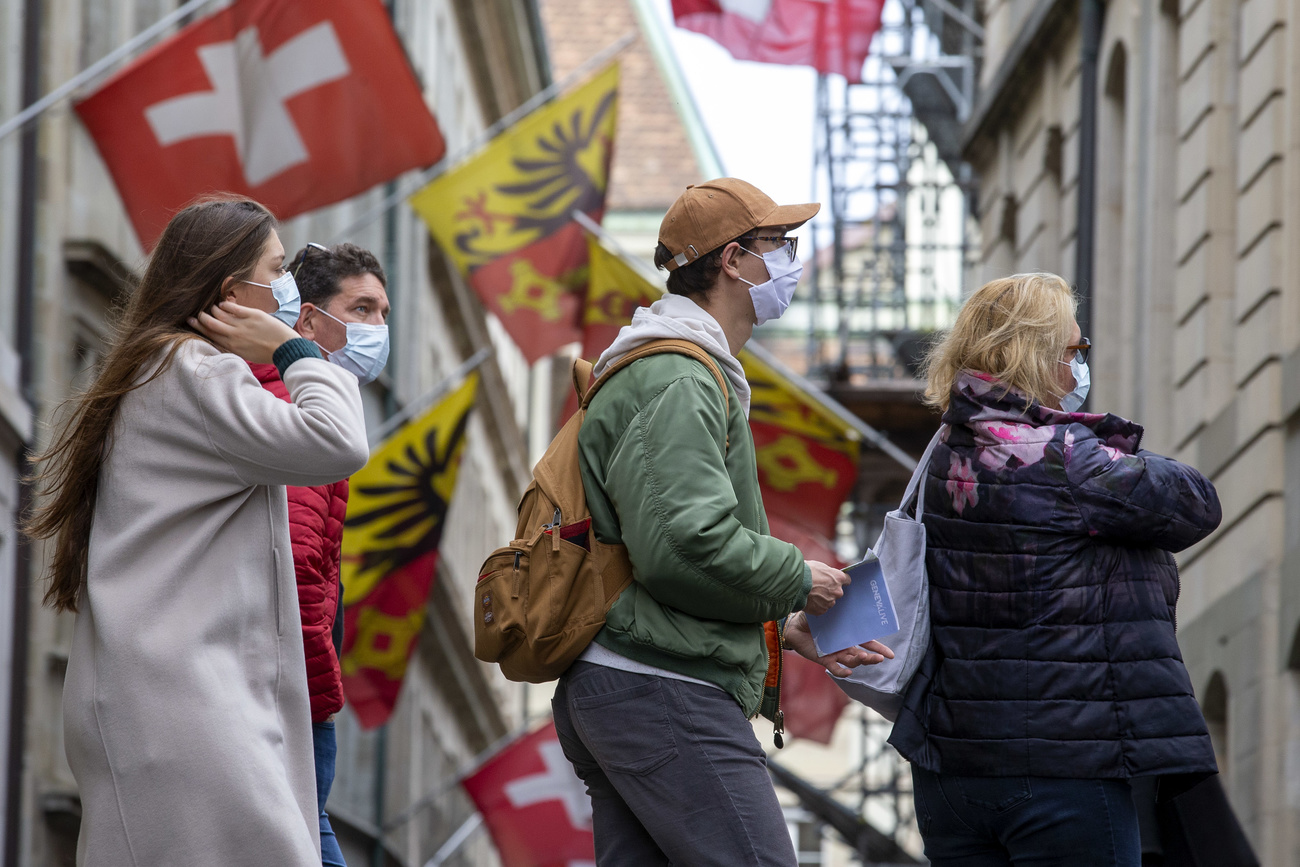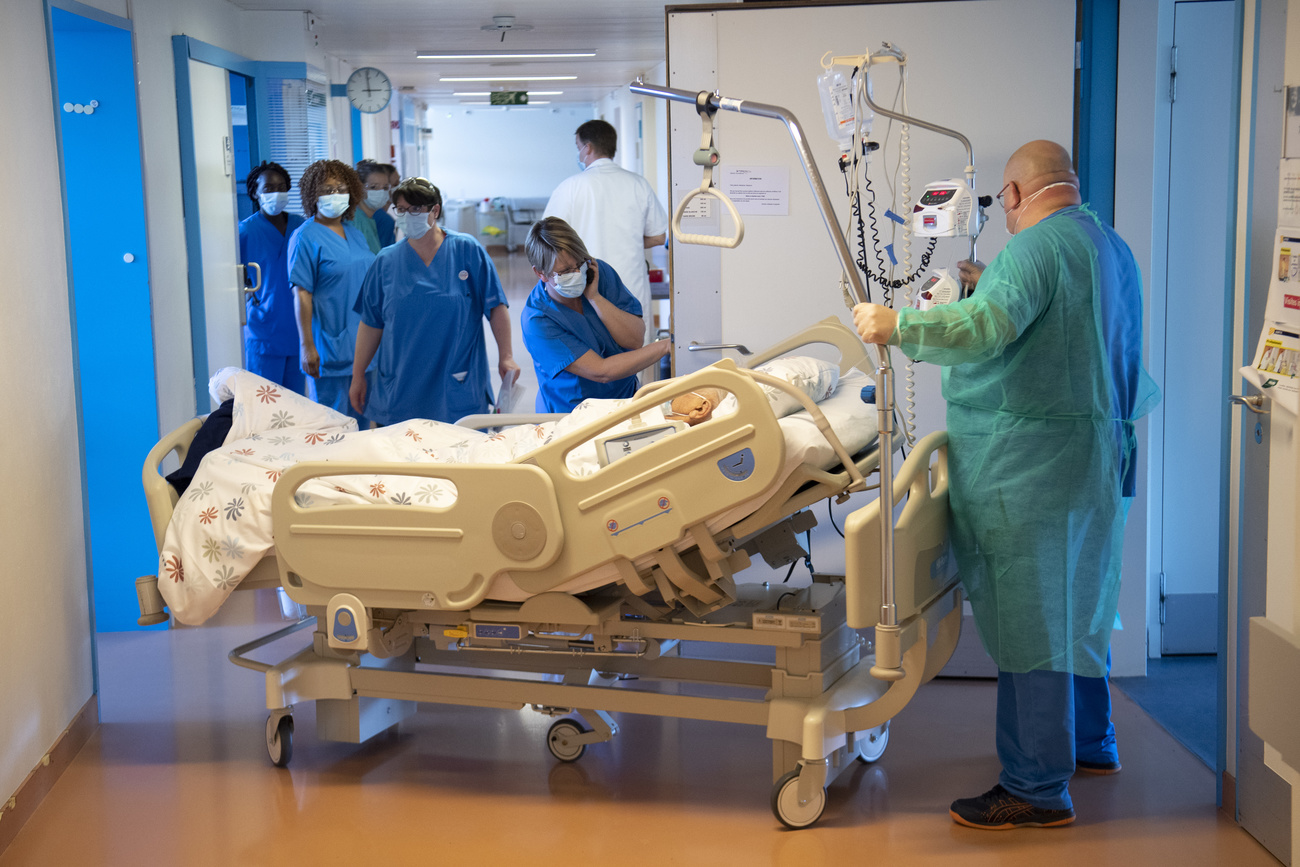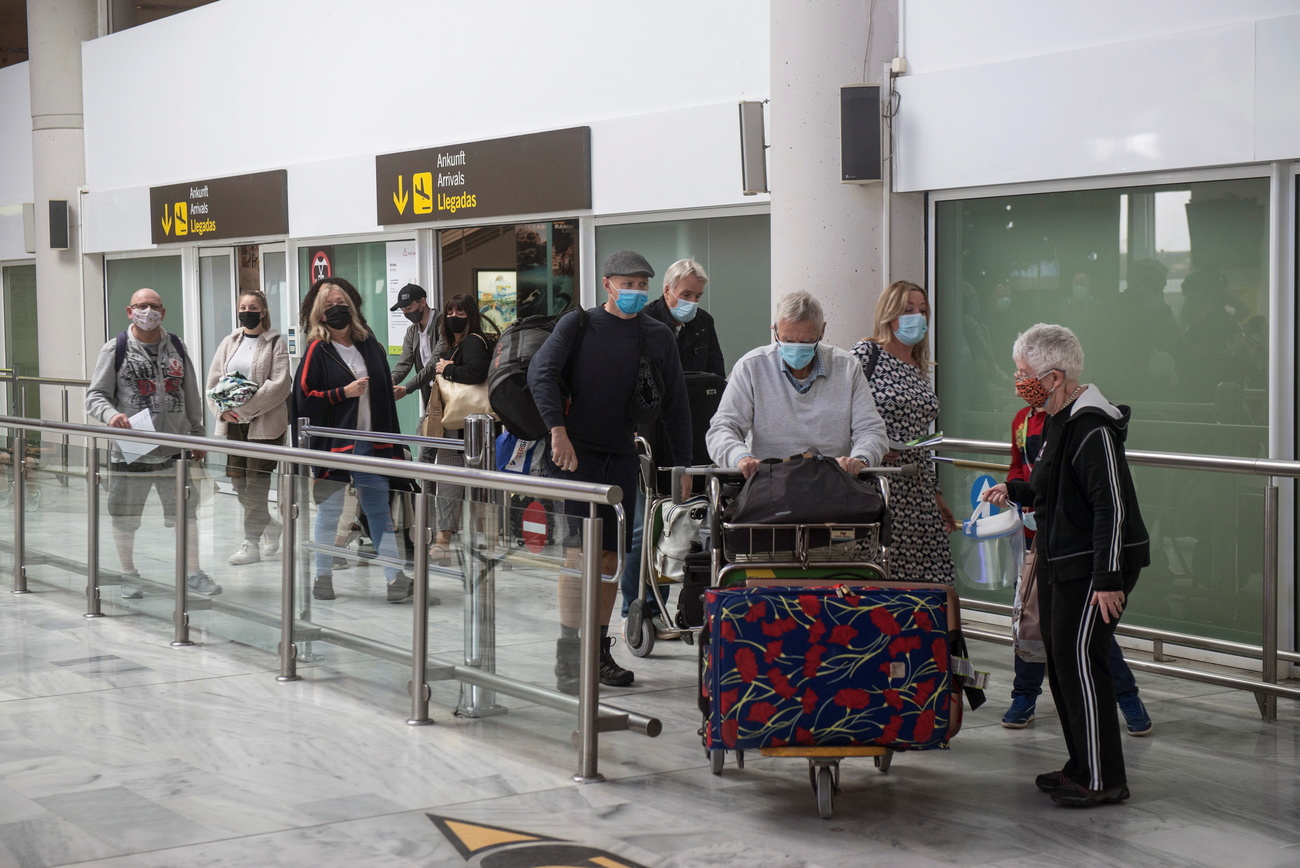Switzerland refuses to follow neighbours into new lockdown

Just as much of Europe has been plunged into a second lockdown, Switzerland is holding out.
As governments across the continent rush to implement new restrictions to contain an upsurge in coronavirus cases, the wealthy Alpine state is insisting the severe curbs on public life imposed in the original shutdown must be avoided.
“Nobody wants a second lockdown,” Simonetta Sommaruga, president of Switzerland’s governing federal council, said last week.
It is a risky strategy, given that Switzerland currently has 1,580 new virus cases per 100,000 citizens, a higher rate than the UK, which on Thursday entered a month-long second lockdown.

The federal council in the capital Bern has instead introduced a raft of measures it hopes will be enough to contain a second wave.
Mandatory mask wearing has been extendedExternal link; hospitality venues must close at 11pm; indoor gatherings of more than 10 people are banned; and no more than four people can sit together in a bar or restaurant unless they are directly related and live together.
Border controls, meanwhile, have in effect been loosened. Arrivals do not need to quarantine unless they are entering from a country where the viral caseload per 100,000 people is 60 above the level in Switzerland.
The restrictions are remarkably light-touch compared with elsewhere in Europe. In England, all restaurants, bars and shops selling “non-essential” goods have been, from Thursday, shut for a month. In France, much of public life has been closed down and residents need a specific reason to leave home.
Switzerland has been locked in a political tussle over what to do for weeks amid deep divisions between those who believe reducing the number of new infections is the priority and those who view the economy and public life as paramount.
Economiesuisse, a lobby group whose opinions are closely watched by the Swiss government, has said the “absolute priority” was averting a second lockdown. “If restrictions should again be necessary in order to avoid overburdening the healthcare system, targeted measures with the lowest economic costs must be chosen,” it said in a recent “action plan” to restart the Swiss economy.
Ueli Maurer, Switzerland’s respected finance minister, warned in an interview last month with broadcaster SRF that fresh restrictions would be “disastrous”.
“Switzerland cannot afford a second lockdown.” he said.
The country has taken on an additional CHF22 billion ($24 billion) of debt this year to stem the economic damage of the pandemic — far less than many other European countries. So far, the Swiss economy has fared relatively well. The state secretariat for economic affairs has estimated that gross domestic product will decline just 5 per cent this year.
The Swiss approach has drawn comparisons to Sweden, which resisted a lockdown during the first virus wave and instead relied on softer measures such as encouraging social distancing.
Swiss officials reject the parallel, pointing out that the country had already endured a punishing lockdown. Bern believes the priority is to find a solution that is workable and sustainable for the months ahead, not a quick — and economically damaging — short-term fix.
“The goal is to learn to live with the virus,” said Effy Vayena, professor of bioethics at ETH Zurich. “Lockdowns are not the way to manage this situation, even mini-lockdowns. The sustainable approach is to take proportional measures as we move along. We need measures we can live with for a long time.”
Switzerland’s approach is summed up in the word Eigenverantwortung, or self-responsibility, which has trended on Twitter in recent days as Swiss government ministers sought to drive the message home in newspapers and television interviews.
Yet not everyone is convinced that this has the right approach. Martin Ackermann, head of the country’s advisory Covid-19 task force, has warned that there were “no alternatives” to serious curbs on public life. The country would soon run out of intensive care capacity in its hospitals based on current infections rates, the task force has told the government.
Part of the problem is that Switzerland’s devolved and consensus-based political model means that the federal council is always reluctant to take action without unity among the 26 individual cantonal governments.
Given their hugely varied approaches and attitudes to the crisis, that has been hard.
Belief that individual freedoms are integral to what it is to be Swiss is widely held among the country’s citizens. Switzerland was the first nation in western Europe to reopen its restaurants and bars after the first lockdown. Shops and businesses have thronged with people throughout the summer and most Swiss have been working from their offices for months.
“The approach now is to have as much self-responsibility and freedom as possible and to react whenever necessary,” said Lukas Golder, president of GFS Bern, a pollster. “The confidence we can cope with coronavirus is based on that.”
But, he cautioned: “We are now on a path which could obviously prove to be very dangerous compared with other countries.”
Copyright The Financial Times Limited 2020
Corrections: the original version of this story stated that there are 27 individual cantonal governments, when in fact there are 26. The article also stated that “mask wearing has become compulsory outdoors”. On October 28, the federal government extended mandatory mask wearingExternal link to an additional range of situations. It also stated that Ueli Maurer, is Switzerland’s respected “former finance minister”; he is the current finance minister.

In compliance with the JTI standards
More: SWI swissinfo.ch certified by the Journalism Trust Initiative



You can find an overview of ongoing debates with our journalists here. Please join us!
If you want to start a conversation about a topic raised in this article or want to report factual errors, email us at english@swissinfo.ch.